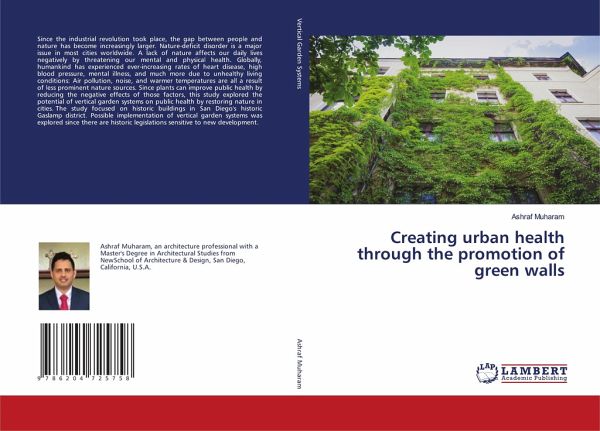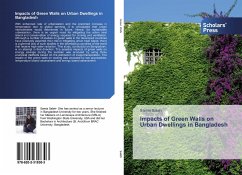
Creating urban health through the promotion of green walls
Versandkostenfrei!
Versandfertig in 6-10 Tagen
47,99 €
inkl. MwSt.

PAYBACK Punkte
24 °P sammeln!
Since the industrial revolution took place, the gap between people and nature has become increasingly larger. Nature-deficit disorder is a major issue in most cities worldwide. A lack of nature affects our daily lives negatively by threatening our mental and physical health. Globally, humankind has experienced ever-increasing rates of heart disease, high blood pressure, mental illness, and much more due to unhealthy living conditions: Air pollution, noise, and warmer temperatures are all a result of less prominent nature sources. Since plants can improve public health by reducing the negative ...
Since the industrial revolution took place, the gap between people and nature has become increasingly larger. Nature-deficit disorder is a major issue in most cities worldwide. A lack of nature affects our daily lives negatively by threatening our mental and physical health. Globally, humankind has experienced ever-increasing rates of heart disease, high blood pressure, mental illness, and much more due to unhealthy living conditions: Air pollution, noise, and warmer temperatures are all a result of less prominent nature sources. Since plants can improve public health by reducing the negative effects of those factors, this study explored the potential of vertical garden systems on public health by restoring nature in cities. The study focused on historic buildings in San Diego's historic Gaslamp district. Possible implementation of vertical garden systems was explored since there are historic legislations sensitive to new development.












